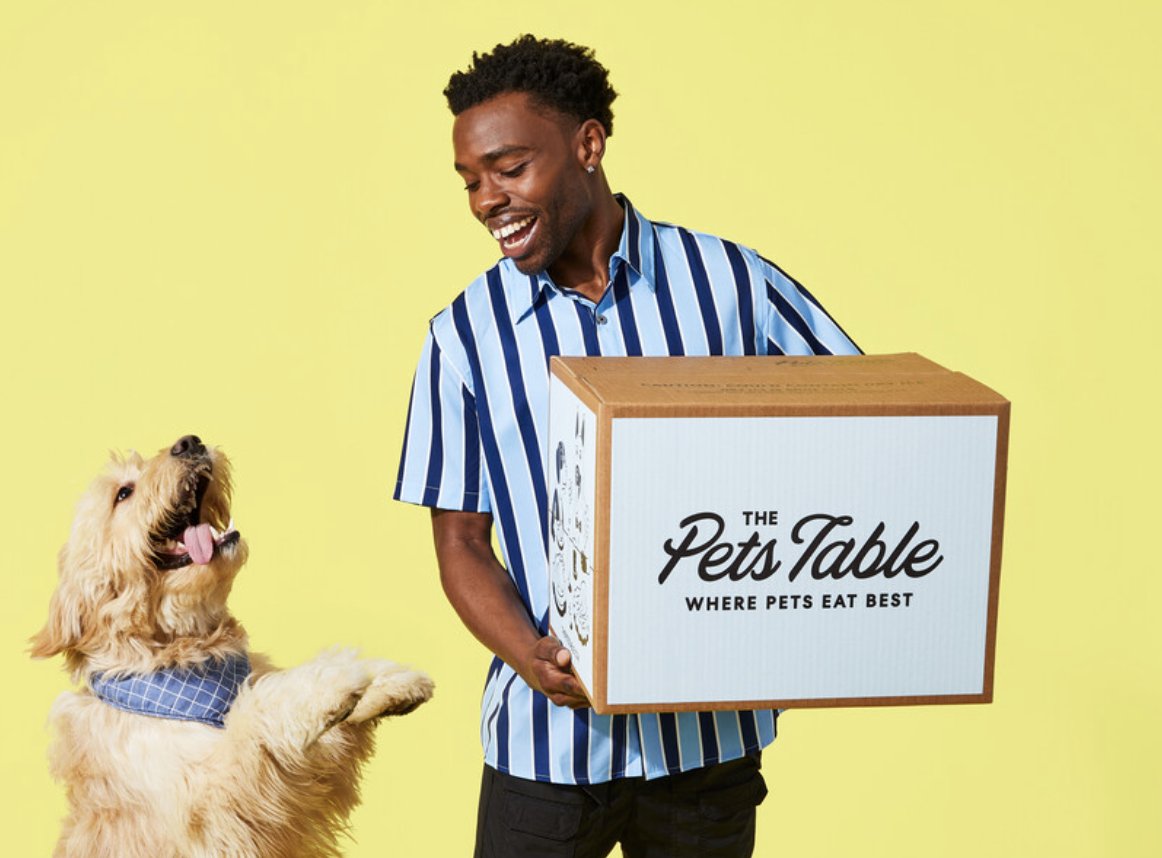Today is International Dog Day, which makes it a perfect opportunity to explore some of the most exciting developments in technology designed for pets, especially for dogs.
Right now, there’s a noticeable increase in pet technology centred around science. This includes studying DNA, mapping out genomes, diagnosing health issues, creating precise food plans, and even providing therapy for behaviour.
The main aim behind these advancements is to ensure dogs have longer, healthier, and happier lives.
So, let’s check out some important trends in this field which put science at the forefront of dog health and wellbeing.
Genetic testing
Genetic testing in dogs was traditionally utilised to verify “pure breed” dogs, but now it has taken its cue from human medicine as it is a valuable tool in determining genetic predispositions to particular health problems, and the means to develop early treatment and intervention.
Research into the animal genetics market is predicted to be worth over $6.4bn by 2027.
Key companies include Feragen (Germany), Pet Genoma (UK), and Scotland’s MI:RNA Diagnostics.
The companies are working to make significant improvements to dog health. For exampe. MI:RNA Diagnostics is a spin-off from Scotland’s Rural College. It has developed a novel early disease detection technology for the veterinary market that uses microRNA biomarkers to accurately identify if a disease such as heart disease is present through blood sample analysis.
Heart problems affect around 10% of dogs and are becoming more common as pets live longer.
Vets can typically pick up the signs of heart disease using a stethoscope. However, these can only be detected when symptoms appear. Earlier tests involving an ECG are costly.
The new technology combines biomarkers with a bespoke AI model. This allows for early detection before the animal shows symptoms. Its tests can not only show if heart disease is present but what kind specifically.
This leads to improved treatment, superior quality of life and longevity.
There are currently human therapeutic antibodies approved for 60 unique targets across a broad range of conditions that range from asthma to arthritis and cancer to Crohn’s disease.

For many of these conditions, dogs get sick in just the same way, and the similarity is so high that the pet versions of these diseases are often studied to help us learn about human illness.
PetMedix is a Cambridge pet therapeutics startup. It builds platforms to develop fully species-specific, naturally generated therapeutic antibodies. These platforms develop veterinary medicines to target some of the most essential underserved clinical areas.
The company is engaged in partnerships with multiple research laboratories, simultaneously conducting research focused on developing pain treatment antibodies.
Hypoallergenic dog food
Food allergies are involved in about 5% of all skin diseases and up to 25% of all allergic skin conditions in dogs.
They are challenging to diagnose and treat. Worse, they can start suddenly at any rate, even if a dog has been eating the same food for a long time. They can lead to irritating dermatological or gastrointestinal problems that, left untreated, can become severe.
In May this year, Paris insect producers Ÿnsect launched Sprÿng, its new B2B2C brand for the pet food market. As you guessed it, pet food is made from insects.

Made using the Molitor mealworm, the company shared that the ingredients are “natural, highly nutritional, and healthy, and can be used to produce dry and wet pet food. The ingredients boast the highest protein content in the insect market (up to 71%), low ash content (less than 5%), and linolenic acids.”

It has health benefits and a lower carbon footprint than traditional dog food.

This also highlights the market trend of companies expanding their reach to pet food. Berlin-founded food delivery business HelloFresh has also identified pet food as a valuable market, launching its new premium pet food brand, The Pets Table, earlier this month.
Developed in partnership with veterinarians, the subscription-based service offers human-grade fresh and air-dried recipes customised for the needs of each dog according to breed, age, weight, activity level, build and more.
These are already highly successful brands — Ÿnsect has raised over $625 million from significant global investment funds, banks, and public institutions and exports its products worldwide.
Hello Fresh operates across 18 international markets and has raised over $367 million. The more big players expand their product offerings to pet food, the greater the challenges for small pet food startups.
Intestinal health

The intestinal microbiota, commonly called intestinal flora, plays a fundamental role in the general well-being of our four-legged friends.
Knowing the intestinal microbiota of your pet, enables you to select foods that support healthy intestinal flora and promote better absorption of nutrients.
Proper nutrition can help prevent gastrointestinal problems, improve skin and fur health and aid in weight management.
Italian startup LampoVet is developing a telemedicine portal where both pet parents and veterinary doctors can access a personalised gut microbiome analysis and nutrition and specialist veterinary opinion.
It unlocks the power of gut microbiome to enhance the benefit of personalised nutrition in managing a pet’s health and provide specialist veterinary support for managing a variety of pet disorders.
Veterinary doctors can also find relevant information on the gut microbiome, clinical cases and the most recent research on gut microbiome to provide practical examples of the usefulness of gut microbiome and nutrition in clinical practice.
The company additionally provides video appointments for dermatology, gastroenterology, and nutrition.
Psychological support
For many dogs, New Year’s Eve is their worst nightmare with the sound and sight of loud fireworks.
Finnish startup Go Dogo (who I featured here) has developed a highly successful behavioural workout for dogs aimed at keeping dogs entertained in their owners’ absence and curbing undesirable behaviour like barking.
The startup has recently partnered with Iben Meyer and Björk Forkman from Peter Sandø’s Centre for Companion Animal Welfare at the University of Copenhagen to develop a fear reduction program to reduce dogs’ fear of fireworks.
In the Go Dogo Sound DeSensitisation and Counter-Conditioning training program, the dog is exposed to the sight and sound of fireworks over six gradual levels.
It is responsible for turning on the sound during the first level in exchange for a food reward. As CEO and cofounder Hanne Jarmer shared:

“It starts with the least scary sounds playing briefly at a super low volume. During the first three levels the dog learned to like the different sounds. In Level four, the dog starts turning on a mix of fireworks sounds, and the volume (and length) gradually increases to a medium level. In Level 5, it’s more or less the same, except the volume and intensity goes to maximum — the TV’s default normal level of volume.
After level 5, the dog will have learned to like the sound of fireworks, as he/she knows that a treat will come along. In the last level — level six — the dog parent will set four to five scheduled games at random times during the day. The volume is decreased again and gradually turned back up over time. This is to train that the dog is not in control — that the (nice) sounds may occur randomly.
After the six levels, the owner is encouraged to turn up the TV a couple of steps and repeat levels 5 and 6 until their dog is super OK with pretty high volume. And at New Year’s, Bonfire Night (in the UK) and 4th of July (in the US), the owner should still draw the curtains, play music to mask, and reward the dog after each bang.

As we celebrate International Dog Day, these advancements in pet technology remind us that the bond between us and our four-legged family members, driven by science, empathy, and innovation. Through genetic insights, therapeutic breakthroughs, advanced nutrition, and psychological support, our canine companions are set to experience healthier and happier lives, reflecting the profound impact that technology can have on both their health and well-being.

